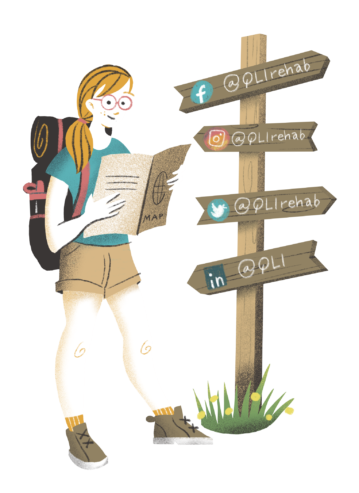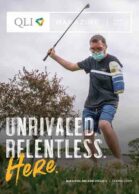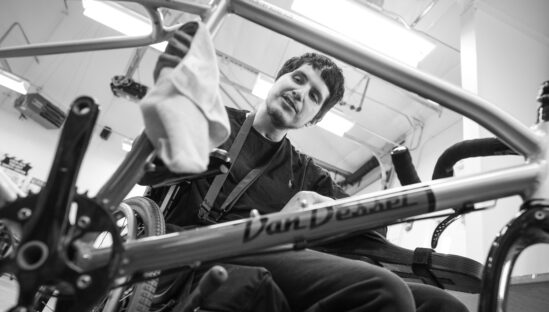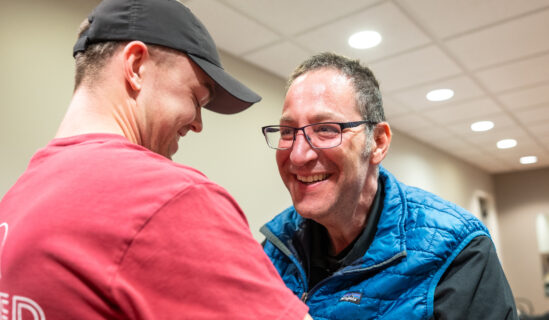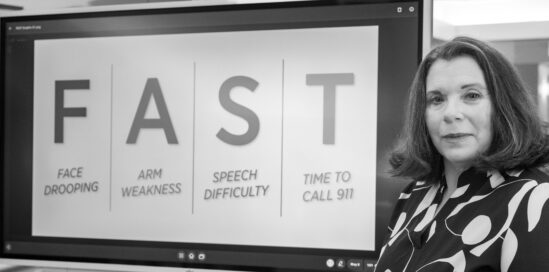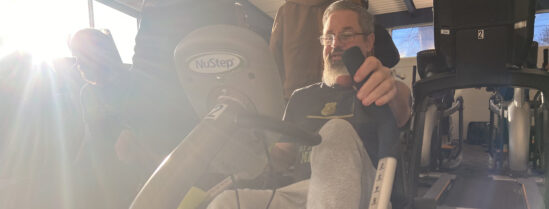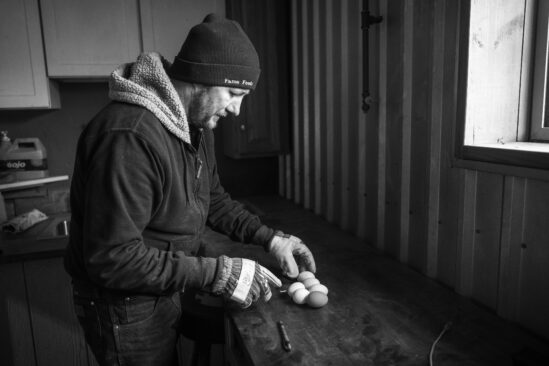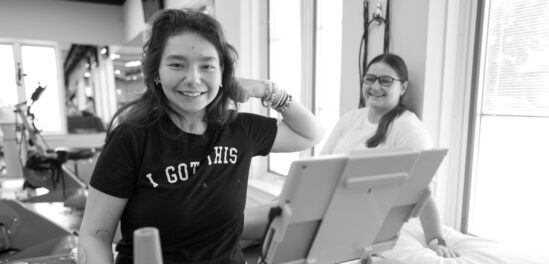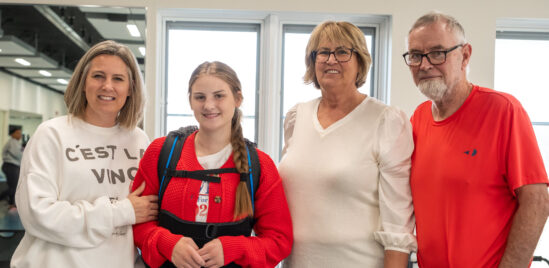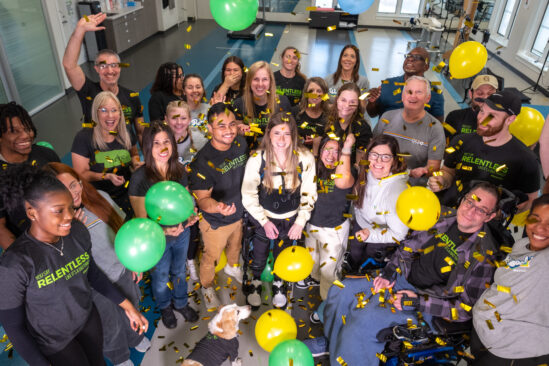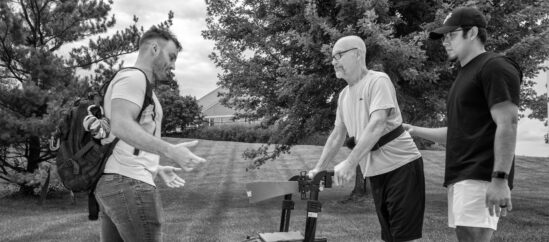Jon LaCourse remembers the call. In the middle of a week in late August 2024. He was away from their home in Fargo, North Dakota, on a business trip in Columbus, Ohio. His wife, Ashley, who was home with their three dogs, felt ill and had discomfort. “Ashley said she couldn’t move well, had trouble getting the dogs out, needed help…” he pauses, recalling his disbelief. “It was so out of character for her.” The two assumed it might have been a flare-up of her Multiple Sclerosis or a very bad case of COVID. In any regard, they expected things to clear up—a temporary and fleeting virus that would pass. Jon returned home shortly thereafter, but whatever Ashley was battling had grown stronger. A visit to the hospital for bloodwork and some tests showed nothing abnormal. The two returned home, defeated. A cloud in Ashley’s cognition started to form. “We went to the emergency room at Sanford Hospital in Fargo, the doctors ran an MRI, a lumbar puncture, and admitted Ashley.” The decline did not stop. “The next Wednesday,” says Jon, “a week after she had called me, the doctors confirmed it was West Nile virus.” A couple of days later, Ashley fell into a comatose state for nearly two weeks.
The virus, from mosquitoes, does not affect a large majority of individuals (with around 80% being completely asymptomatic). For another, much smaller group (around 19%), the symptoms are akin to a common cold, one that lingers for a short time before resolving. However, for the final 1%, the prognosis is much more severe, with the virus attacking the host’s neurological system. All the basic motor functions, as well as cognition, executive functioning, and speech, can be affected. Naturally, the LaCourse family was left to wonder what the full impact of the virus would be. And when the worst had passed, what could be done to get Ashley back to the life she shared with her husband? Then, Jon says, “We looked for the facilities in the country where Ashley could get the best rehabilitation.” For the LaCourses, every step along the way has been, as they note, “God’s plan,” viewing what will come as something that will eventually come to fruition. Following an eight-week-long rehabilitation program at Madonna Rehabilitation Hospital in Lincoln, Nebraska, the LaCourses arrived at QLI in November 2024.
“By the time we came to QLI,” remembers Ashley, “I couldn’t eat or drink on my own.” She laughs. “I couldn’t even move my hand up and scratch my face.” There was also a period of nervousness, knowing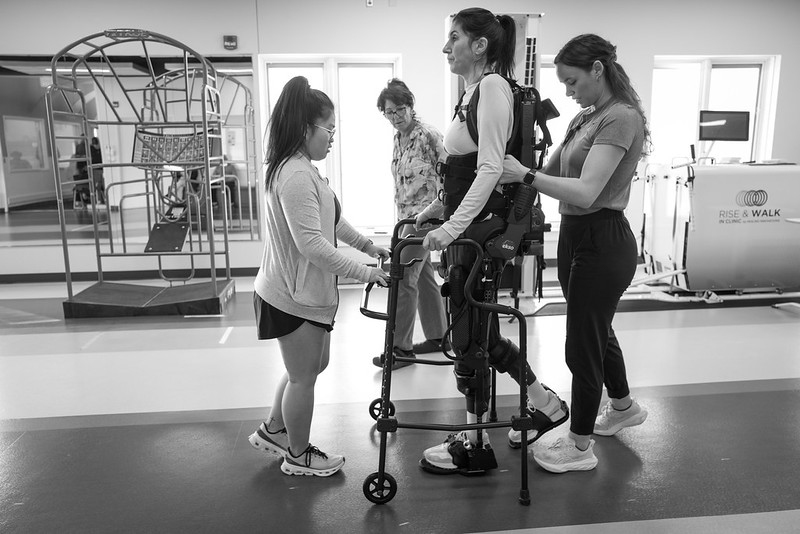 that living in a house environment on QLI’s campus would mean starting to transition into a program geared completely toward maximizing and fostering independence. “The team placed trust in me,” says Ashley, “and then I began to trust myself more.”
that living in a house environment on QLI’s campus would mean starting to transition into a program geared completely toward maximizing and fostering independence. “The team placed trust in me,” says Ashley, “and then I began to trust myself more.”
Ashley, a strong, independent woman in every sense, built a career in the hospitality industry, becoming a Vice President of Sales for Brandt Hospitality Group. Her love of connection with others and her drive were her greatest allies. “She’s the toughest person I know,” says Jon, “and never makes excuses—whatever it takes to do something, she’ll do it.”
Looking back on the time when her QLI program was being formulated, Ashley could sense what was coming: “Before, it was all about stabilizing, getting better in the medical sense. Now, it’s work—time to heal.” Any plan she notes, she meets with a “let’s go—let’s do it” attitude. It wasn’t simply a top-down approach to her program’s creation, but rather a conversation, which the couple was pleasantly surprised by. “They spoke with us to understand what we ultimately wanted, and then we went from there.” She smiles. “My husband, the team, and I all work hand in hand towards creating goals. It’s like a partnership of sorts.”
So what was it that Ashley wanted? To be active, to fully work again, to spend time living life with Jon, traveling, and raising their dogs. It was with those core focal points that her program began. Speech pathologist Zoey Bertsch remembers, “When I began to work with Ashley, her awareness of her situation was growing, beginning to understand that physically and cognitively things weren’t the same as they had been months prior.”
Of course, that is not to say that the day-to-day in which she thrived was gone. Far from it—it would take creative thinking, allowing time to build skills in a way that worked towards her goals. Ashley was a strong leader within her workplace. That macro goal of working and once more being a strong leader could be fostered by guiding Ashley through the management of her days while at QLI. Coordinating her schedule, communicating with clinicians in planning sessions —this involvement grew over time through getting her voice back. “The team got to know who I was, and I got to discover who I was all over again. The team walked me into the program and could provide great context and clarity on everything.”
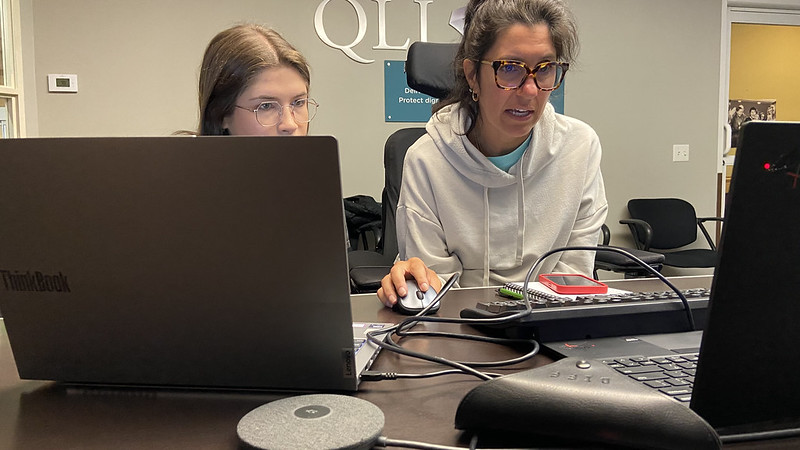 Communication is key in hospitality so Ashley worked with Zoey to incorporate respiratory techniques and devices to produce strong breaths, increasing the power of her voice so she could be heard. Further, time was taken to familiarize Ashley with software and applications to aid in executive functioning, allowing for the organization of thoughts and plans, in addition to speech-to-text features. “Ashley even valued being able to use pen and paper with notebooks, writing down notes, placing them in tabs to better organize herself, but then being open to incorporating more. We brought in the laptop she used for work. It was familiar and suited her preferences, being able to practice work simulations on a device she used daily.” Not only did Ashley see progress with her cognitive functions, but she was truly starting to feel a little more like herself.
Communication is key in hospitality so Ashley worked with Zoey to incorporate respiratory techniques and devices to produce strong breaths, increasing the power of her voice so she could be heard. Further, time was taken to familiarize Ashley with software and applications to aid in executive functioning, allowing for the organization of thoughts and plans, in addition to speech-to-text features. “Ashley even valued being able to use pen and paper with notebooks, writing down notes, placing them in tabs to better organize herself, but then being open to incorporating more. We brought in the laptop she used for work. It was familiar and suited her preferences, being able to practice work simulations on a device she used daily.” Not only did Ashley see progress with her cognitive functions, but she was truly starting to feel a little more like herself.
“The team approach for Ashley was empowering her to be herself,” says Kelly. “Being active and living life to the fullest with Jon, Kelly notes her physical therapy “started with getting any kind of movement.” An early goal, being able to sit on the edge of a bed without a two-person assist to stay upright, was quickly surpassed. Over time, Ashley has excelled in work with the Ekso Bionic exoskeleton and the Zero G bodyweight support system, being able to drive her legs and plant her feet in strides with lessened support from the devices.
Ashley’s recovery from West Nile virus did not mean her marriage to Jon would get put on hold. After illness or injury, relationships of all sorts can evolve or take different forms from the ambiguous losses that an individual or their loved ones have. The core of Ashley and Jon’s relationship did not change—their connection and love being always present meant it was important to find opportunities to do things like a date night or getting off campus—collaborating, planning, and problem solving—building skill and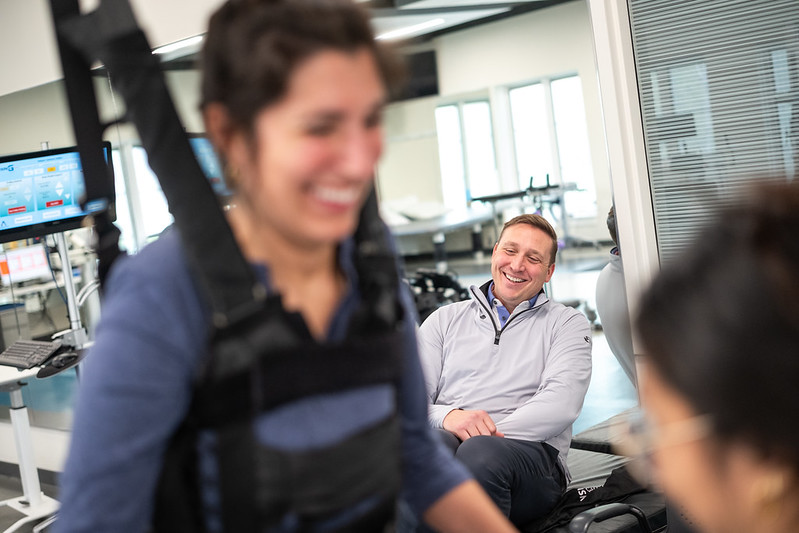 comfortability in things such as car transfers, making sure that the places they go are accessible.
comfortability in things such as car transfers, making sure that the places they go are accessible.
“Doing her hair, applying makeup, and putting in earrings are all great exercises to work on fine motor skills,” notes occupational therapist Ellie Messerschmidt. Those tasks were greatly motivating for Ashley, and through continual practice and collaboration with the team, she has improved significantly in her functional mobility. The arms that she couldn’t even get up to her face to scratch an itch could reach high above her head within a few months.
“It’s one chisel at a time,” says Jon, “and everything builds that. The support you feel here—every single person you meet is so invested in helping your loved one—no matter the goal, the team will find a way to make it happen.”
“I don’t want to jinx myself,” Ashley laughs, “but everything is continually progressing—I haven’t reached any plateau yet.” Looking back in March 2025, the LaCourses are greatly excited for whatever the future might hold. So long as coverages are in place, Ashley is ready for the work still ahead of her at QLI and beyond. “Everything,” she emphasizes, “is a milestone.”



